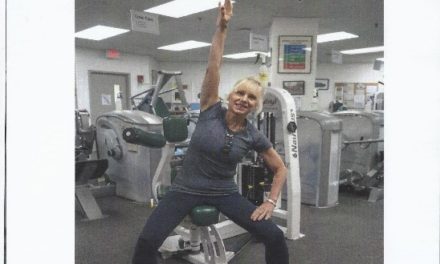By Marie Fricker
The heat of summer inevitably makes us think back to the simpler days of youth, and this remembrance of summers past, first published in the aftermath of the COVID19 pandemic, has become a seasonal favorite of our regular readers. Join us as we take a walk down memory lane…
The ice cream truck rang its melodious chimes climbing the asphalt hill into our East Arlington neighborhood. It was July of 1961, and as on any other summer night on Teel Street, squealing swarms of Baby Boomers were playing hide-and-seek, kick the can and relievio in neighbors’ yards until the street lights came on. But when the first faint bells from Mister Softee whistled in the wind, all kid action came to a grinding halt. Energy had to be conserved for the next part of our nightly ritual – parental begging.
The chorus of “Pleeze, Mom… Dad… Nana, can I have a Creamsicle… a Push Pop… a Nutty Buddy?” echoed through open screen doors, followed by the jingling of coins as kids piled down their porch steps to join the growing line in front of the ice cream truck with its flashing neon lights and unending strains of “Pop Goes the Weasel.”
As the picture-perfect days of June led to the glorious, school-free days of July, the summer seemed like it would never end. People walked the sidewalks after doing their supper dishes, chatting with friends and patting dogs, who ran unleashed, chasing cars and cats (there was no such thing as an “indoor cat” in those days, and always a plentiful supply of kittens.)
Even when I was made to go to bed at 8:30, when the sun had barely set, I could hear my parents voices on the front porch beneath my window, talking with passing neighbors or cheering for the Red Sox on their transistor radios. I don’t remember a more peaceful feeling than on those warm summer nights.
We didn’t live by the ocean, so days were spent at chlorine-drenched MDC pools or the town reservoir, but for most of us, the local playgrounds were our summer havens. Each year, park teachers (two college seniors) would teach us how to make potholders, weave gimp, pour molds, play Nok-Hockey, and put on talent shows on the sweltering hardtop of the basketball court. At the end of the season, they would take us on a bus trip to Pleasure Island, an amusement park in Wakefield, and we would sing “99 Bottles of Beer in the Wall” all the way there.
No child’s summer days were scheduled with dance, art, science, or sport camps, as they are today, but a few of the more well-off families sent their kids to overnight camps, which were the envy of the rest of us. Our friends would come back with amazing pictures of themselves fishing, paddling canoes, and singing “Kumbaya” over a roaring campfire. Of course, my mother tried to convince me that she was saving me from being homesick by not sending me to “some strange camp in the woods” for two weeks.
But it didn’t matter if we didn’t go away, because there was so much to do in our own backyards all summer long. Most every house on the street had at least five or six kids (mine being the exception with just me and my teenaged sister), so there was never a shortage of playmates. We rode our banana seat bicycles to Maida’s pharmacy and ordered dripping hot fudge sundaes in shiny silver bowls, sipped root beer floats in cold-frosted mugs, and spun ourselves around on red leather stools at the soda fountain counter.
If your family had a car, you went to the drive-in on Friday or Saturday nights, drove through the crunchy gravel to a metal speaker on a post next to your station wagon and watched a double feature like “The Parent Trap” and “It’s a Mad, Mad, Mad, Mad World” for 25 cents a head. Little kids wore their pajamas and played on the swingset by the snack stand until it got dark enough to run the first movie, and then slept through the second one. You usually left the drive-in smelling like popcorn and bug spray and being carried in the house by a parent.
Every Fourth of July, we watched a fireworks display from a ballfield in Somerville, loving the light show in the black sky, but dreading the after-booms. Later that month, the carnival came to town, and we watched the world from the top of the Ferris wheel and the dizzying blur of the merry-go-round. We ate cotton candy until pink sticky strands were plastered to our bangs, and, as teenagers, we flirted with the carny men who seemed so mysterious.
As all good things do, our childhood summers always came to an end too soon, and the sounds of crickets chirping in early August signaled the impending arrival of fall. Even today, when I hear the slow chirp of crickets, it makes me feel a little melancholy to think of something wonderful that’s passing.
But this joyful season has a lot of life left! Life has resumed and the isolation of the COVID19 pandemic is behind us. We can see our friends and family and line up at the ice cream truck again without six feet between us.
It’s summertime, and the living is easy!



